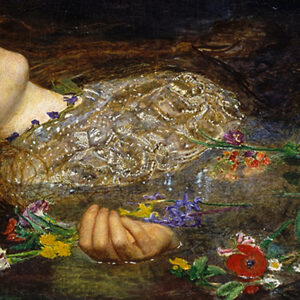Who doesn’t love a secret society? We’ve had the Illuminati, Skull and Bones, the Stonecutters from “The Simpsons” and the Merry Marvel Marching Society – OK, the latter admittedly not a truly secretive society.
Who doesn’t love a ridiculous journalism practice, one with fewer consequences than the political journalism of recent years? In fact, no consequences at all if you don’t count a 1970s-era Chicago newspaper reader calling out to his wife in the kitchen, “Hey Marge, Royko is writing about this ‘occult hand’ business again!”
Once in my decades in newsrooms, I even tried to join the Order of the Occult Hand. And failed because of that foil of all journalism conspiracies, editing to fit the column inches available.
But what is – or was – the Order of the Occult Hand?
My introduction to the Order
You won’t find a recounting of the Occult Hand in journalism school textbooks – at least I don’t believe so, anyway – or in movies about journalism, from “Citizen Kane” to “All the President’s Men” to “The Paper.” Those films were straightforward stories of journalists crusading against corruption and secrecy, or in the instance of Charles Foster Kane, in favor of it.
No, to find about the Order of the Occult Hand, it helped to be a newspaper reporter or editor or someone who paid an unhealthy amount of attention to the news industry.
I found out about the Occult Hand in the 1980s, when I was a freelancer and, beginning in 1984, an employee of an afternoon paper in Indiana. I always said that one of the best things about working in journalism back then was unfiltered access to the Associated Press wire. The AP moved every kind of story, originating from news operations of every type, across the wire for use by its member newsrooms. It was like having access to the biggest and broadest newspaper of all time.
Along with those stories came a weekly feature that was written by an old newspaperman – of course it was a man – that provided an irreverent look at the business. It was a column not intended for public consumption; it was far too inside baseball. I no longer remember the name of the writer or the name of that weekly column. (If anyone remembers, please let me know.) He included along with bits of news about the business all kinds of frivolous stuff, including the adventures of an intrepid newshound named Speed Graphic, the name itself a reference to the 20th century Speed Graphic camera.
It was in that column that I learned about the Occult Hand.
What I did with that information I’ll tell you, as best as I recollect, in a moment.
The origins of the secret society
The Order of the Occult Hand got its start on August 25, 1965 in an otherwise somber article by Joe Flanders in the Charlotte News. In an article headlined “His First Break Ended with Death,” Flanders writes about an 18-year-old who was shot to death.
“It was as if some occult hand had moved pawn after pawn until they were in the right place and then – tragedy,” Flanders wrote in the third paragraph of his story about the killing of young Freddie Lee Harr.
As was so often the case with newspaper reporters and editors, Flanders’ colleagues and competitors, hunkered down over drinks after the paper was published, admired the very purple prose. They decided to try to work the phrase into their own pieces.
Flanders’ work led to the Order of the Occult Hand, but it wasn’t the first usage of the “occult hand” phrase. A newspaper search shows it turned up in the Manchester (England) Guardian on April 12, 1848. “Some occult hand, hitherto kept in darkness and secrecy,” begins a paragraph in an article about France. References continued through the rest of the 19th century and into the 20th in newspapers on both sides of the Atlantic.
In 1946, the Bradenton (Florida) Herald noted about vintage movies, “Back in the 1930s, the Orient reached out with occult hands …”
“Autumn’s occult hand converts the rolling slope to fairy land,” J. Corson Miller wrote in a poem published in the Sunday Oregonian in October 1957.
In the modern era – meaning since Flanders’ use of the phrase in 1965 – the “occult hand” was quite busy, showing up in newspapers around the country as reporters signed up for the Order.
A simple search for the phrase “occult hand” in the Newspapers dot com archive turns up over 1.100 uses, but some of those can be dismissed as inaccurate results. Some of the accurate results are doozies, however. And while the North Carolina papers are well-represented in the use of the phrase, it eventually showed up everywhere.
In a 2010 piece, the Los Angeles Times used the phrase in coverage of a reopened bar that was supposedly haunted. The bar’s new owner – the writer paraphrases here – said the woman’s effort “was almost as if she were guided by an occult hand.” (I think a piece about a bar with a ghost should get a pass for using the phrase.)
In a 1974 story in the New York Times about the United Nations, Paul Hofmann used the phrase. Likewise, it showed up in the Washington Times and in many articles from the Associated Press.
In a 2003 column about ice fishing in the Green Bay Press-Gazette, Ed Culhane wrote about a sturgeon that got away. “It was as if an occult hand …”
In 2000 in the Springfield News-Leader, Alison Parker, writing about Chocolate Hazelnut Truffles, used the phrase not once, not twice, but three times.
Almost as plentiful, by the 1990s and 2000s, were newspaper stories and columns blowing the whistle on the practice. In 2004 in a piece published in the Clarion-Ledger of Jackson, Mississippi, Paul Greenberg of the Arkansas Democrat-Gazette wrote a piece headlined, “That old ‘occult hand’ simply getting too visible these days.”
A 1975 Associated Press article recapped how the Boston Globe had revealed the existence of the Order of the Occult Hand and traced its history back to those North Carolina newsrooms. That article quoted sportswriter John Powers, who had used the phrase in a story of a Yale-Dartmouth football game, as saying it had passed beyond the purview of news reporters and into the realm of sportswriters like him.
“I’m not sure I want to belong to any club that would accept a sportswriter as a member,” Powers said.
Bad luck with the occult hand
My experience with the Order of the Occult Hand was over before it began.
My first few years in journalism, as a freelancer from the late 1970s to 1984, was during the pre-tech era. I typed my articles, columns and reviews at home, on paper, and brought them to the newsroom.
By the time I started full-time in 1984, the newspaper’s IT guys had built a word-processing system that not only processed copy but eventually allowed us to connect online. It would be years before we had email at individual desks, for example, but every terminal could see the wire services and that’s where I learned about the Occult Hand folderol.
I decided to try it.
I don’t remember what type of story I inserted “as if by an occult hand” into. It was certainly not in a serious story, but in one of the many entertainment features I wrote at the time.
This was during a period when the newspaper had a composing room staffed with gruff but good-hearted old newspaper professionals who literally “cut in” our articles, cutting printouts of the stories with an exacto knife. Sometimes I was sent by my editors to make those cuts myself.
One day when I was not given that task was one when I had tried to sneak in the “occult hand” reference.
But my story was too long for the column inches available, and the editor doing the cutting had the good sense to cut a couple of paragraphs that included “as if by an occult hand.”
My bid to be included in the secret society was over. I didn’t try it again. The time had passed.
Little did I know that the silly stealth practice would continue for additional decades, even in the wake of articles – one as recently as 2004 in the Chicago Tribune – exposing the scheme. I turned up one in a question-and-answer column in 2001 in the Charlotte Observer, a newspaper in the same city where the silly business had begun in 1965.
The Order of the Occult Hand lived into the 21st century.
Who says journalism doesn’t have traditions anymore?
*
Keith Roysdon is a Tennessee writer who worked in the newspaper business for 40 years. He’s now a writer of true crime, fiction and pop culture. CrimeReads has published more than 60 of his articles and he’s never tried to sneak any secret messages past his editors. Honest.

















